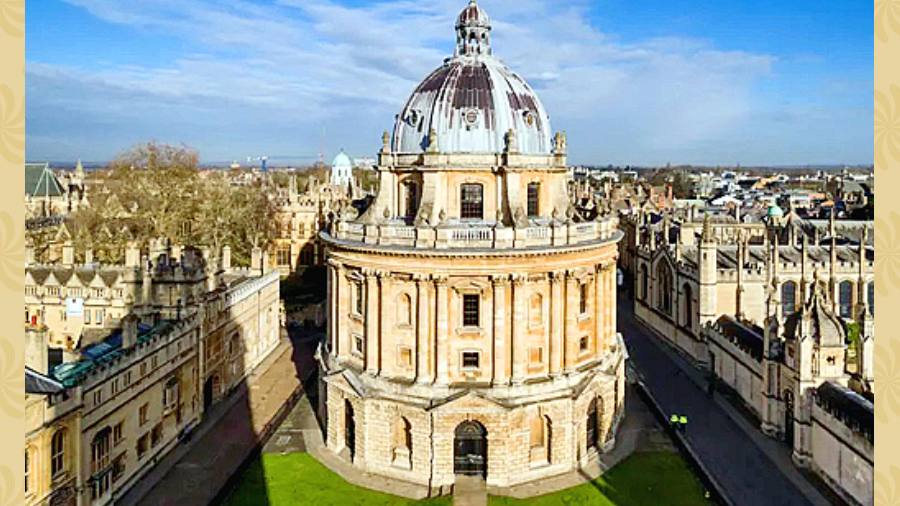Book: Chums: How A Tiny Caste Of Oxford Tories Took Over The UK
Author: Simon Kuper
Publisher: Profile
Price: ₹1,399
Simon Kuper’s book on the pernicious influence of caste is both provocative and richly entertaining. But the caste he has in mind is a subset of the privileged folk who went to Eton and Oxford where they used the university’s debating society as a preparation for high office.
The clue is in the title — Chums: How a Tiny Caste of Oxford Tories Took Over the UK. His thesis is that “Brexit was hatched at Oxford in the late 1980s” and that the book is “an attempt to write a group portrait of a set of Tory Brexiteers — overwhelmingly men — from the traditional ruling caste who took an ancient route through Oxford to power.”
Kuper claims his book is “not another biography of Boris Johnson” but the former prime minister is clearly the villain of the piece. The author argues, “Eton’s mission [is] to produce the ruling class” and that “from 1900 to 1979, nearly a quarter of all cabinet ministers had been to Eton”.
Kuper is not the first Oxford man to take a pop at his alma mater but his gripe is that “the Oxford Tories — and especially the Etonians among them — were made by many forces besides Oxford. They had been groomed for power since childhood,” and that “[t]he Tory Brexiteers were a minority even among Oxford politicos in the 1980s.” To him, “Oxford matters too, as an independent variable. Evidence of this is that it’s possible to tell the story of British politics in the last twenty-five years almost without reference to any other university. I will argue in this book that if Johnson, [Michael] Gove, [Daniel] Hannan, Dominic Cummings and [Jacob] Rees-Mogg had received rejection letters from Oxford aged seventeen, we would probably never have had Brexit.” He says: “It’s impossible, when discussing the Oxford Tories, to disentangle the overlapping influences of caste, school and university.”
Kuper is less critical of Cambridge but his radical solution is to get rid of all undergraduates from Oxbridge and turn Britain’s two premier universities into postgraduate institutions only. That, he says, “would remove Oxbridge’s biggest distortion of British life”.
This is not an idea likely to appeal to generations of Indians and Pakistanis with idyllic recollections of their Oxbridge days. Jawaharlal Nehru was at Trinity College, Cambridge, as were Rajiv and Rahul Gandhi. Indira Gandhi was briefly at Somerville College, Oxford. Imran Khan and Benazir Bhutto were contemporaries at Oxford. Benazir’s father, Zulfikar Ali Bhutto, and son, Bilawal Bhutto Zardari, both went to Christ Church, Oxford.
Not all of Kuper’s observations are to be taken seriously but the book is a lot of fun. Perhaps he is right when he says that boys who went to top British public schools grew up with a rosy view of British colonial rule because “the history of Empire... was personal to the toffs... Ten out of twenty viceroys of India went to Oxford.”
Incidentally, the two candidates who fought to replace Johnson — Rishi Sunak and Liz Truss — both read PPE at Oxford.











